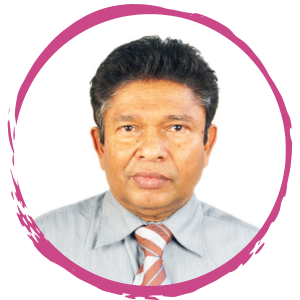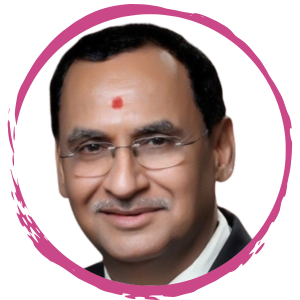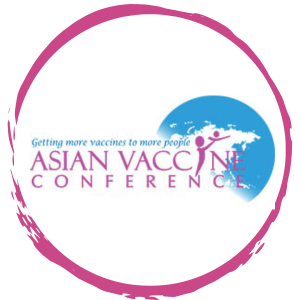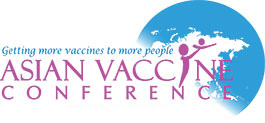Meet the Speakers

Alberta Di PasqualeSingapore
Alberta Di Pasquale Singapore

Alberta Di Pasquale, is an MD with a post-doctoral degree in Internal Medicine from the University of Chieti (Italy), and a PhD in Vaccinology from the University of Genoa (Italy), she is visiting professor of Vaccinology at the University of Antwerp (Belgium), since 2019.
Alberta has over 20 years of experience in vaccines, she has supported new vaccine introductions with scientific and educational activities across many infectious disease and target age groups. She has contributed to awareness and action efforts on modern vaccines, new technologies, vaccine confidence and the life-course immunization.
She has authored or contributed to publications on many of the topics covered in her activities and to a book on “Understanding Modern Vaccines” published by Elsevier in 2011.
She joined Takeda in June 2021 to support the introduction of the dengue candidate vaccine TAK-003 with the aim to contribute to address dengue burden of disease and improving public health in the GEM region

Belle RanilePhilippines
Belle Ranile Philippines


Chris ClarkeAustralia
Chris Clarke Australia


Cynthia AguirrePhilippines
Cynthia Aguirre Philippines


Daniel GohSingapore
Daniel Goh Singapore

Dr Daniel Goh completed medical studies at the National University of Singapore and trained in Paediatrics in Singapore. He underwent Paediatric Pulmonology and Sleep Fellowship at the Johns Hopkins Children’s Centre, USA.
He served as Head of Paediatrics (2007 to 2017) and Paediatric Cluster Chair (2012 to 2019) at the National University Hospital. He was President of the Singapore Paediatric Society (2004 to 2011), President of the ASEAN Paediatric Federation (2011 to 2014), Council Member of the College of Paediatrics and Child Health, Singapore (2017 to 2021), and Standing Committee Member of the Asia Pacific Paediatric Association (2018 to date).
He is a tenured faculty member of the Yong Loo Lin School of Medicine, National University of Singapore, Fellow of the Royal College of Paediatrics and Child Health (UK), Fellow of the American College of Chest Physicians (USA) and Fellow of the Academy of Medicine, Singapore.
Dr Goh has been actively involved in sleep workgroups and research; He is a member of the Pediatric Sleep Council, founded in the USA, and Chair of the Asia Pacific Paediatric Sleep Alliance.
Amongst his many distinguished awards, he received the NUHS Mochtar Riady Pinnacle Award in 2015; Outstanding Asian Paediatrician Award (presented by the Asia Pacific Paediatric Association) in 2018; National Day Award (Public Administration Bronze Medal) in 2018; Distinguished Senior Clinician Award, NUHS in 2019; National Medical Excellence Award – Clinician Mentor Award in 2022.
His clinical interests include childhood respiratory conditions, including asthma and allergies, sleep-related breathing disorders, fiberoptic bronchoscopy as well as vaccinology. He is a keen teacher of the next generation of doctors and paediatricians.

Devon PacialPhilippines
Devon Pacial Philippines

Devon Ray Pacial is OIC-Division Chief of the Public Health Surveillance Division of the Department of Health – Epidemiology Bureau. He is a health policy scientist with eight years of experience in health policy and systems, monitoring and evaluation, and implementation science. He led the provision of technical assistance to local epidemiology and surveillance systems during the COVID19 pandemic and the setting up of compliance monitoring for COVID-19 laboratories. Before his current stint in epidemiology and surveillance, Devon assisted in the
drafting and passage of the Universal Health Care Act and its Implementing Rules and Regulations as a Health Policy and Systems Research Fellow of the Health Policy Development and Planning Bureau. Devon has a master’s degree in Public Health from the University of the Philippines – Manila and a Bachelor in Medical Laboratory Science from Saint Louis University, Baguio City.

Faith VillanuevaPhilippines
Faith Villanueva Philippines


Gertrudis TandyIndonesia
Gertrudis Tandy Indonesia

Dr. Gertrudis Tandy is graduated Medical Doctor from the University of Sam Ratulangi and a Master of Public Health from the University of Indonesia. She is an epidemiologist with almost 20 years of working in health policy focused on the prevention and control of diseases.
Dr. Gertrudis Tandy is currently the Head of Supplementary and Special Immunization at the Ministry of Health of the Republic of Indonesia. She is responsible for implementation and overseeing the monitoring and evaluation, priority initiatives, strategic information, and management of New Vaccine introduction (NVI). Her focus is on accelerating the successful implementation of child health interventions with a specific focus on vaccine-preventable diseases through the New Vaccine Introduction and also life course vaccination through the COVID-19 vaccination in Indonesia.

Hiroyuki MoriuchiJapan
Hiroyuki Moriuchi Japan

Dr. Moriuchi is presently a Professor of Pediatrics at the Graduate School of Biomedical Sciences and a Vice-Director at the National Research Center for the Control and Prevention of Infectious Diseases, Nagasaki University, Japan. He is a President of the Japanese Society for Pediatric Infectious Diseases and serves as a Councilor of several academic societies including the Japanese Society for Virology and the Japanese Society for Clinical Virology. He was the President of the 9th Asian Congress of Pediatric Infectious Diseases in 2018.
He dedicated himself to the basic research and clinical practice of herpesviruses and HIV-1 at NIH, USA between 1990 and 1999. He received Young Investigator Award from the American Society for Microbiology in 1996, and several awards from NIAID in 1999.
He contributed to the establishment of nationwide measures to prevent mother-to-child infection of human T-cell leukemia virus-I in Japan as a principal investigator. He has been a member of the study groups for congenital toxoplasmosis and cytomegalovirus infection in Japan and has engaged in birth-cohort studies for congenital infections, including rubella and Zika, in Vietnam.
He has engaged in vaccine awareness activities for years, concerning HPV vaccines in particular.

HT WickramasingheSri Lanka
HT Wickramasinghe Sri Lanka

Dr. H.T. Wickramasinghe is a Senior Consultant Pediatrician. His main interest is Pediatric infectious diseases. He is a founder member of Asian Society of Pediatric Infectious Diseases and served as the President of the Asian Society of Pediatric Infectious Diseases 2013-2014. He is also a member of Immunization partners of Asia pacific and a standing committee member of the Asian Vaccine Conference. He had been the President of the Sri Lanka College of Pediatricians in 2008-2009 and President of Epilepsy Association of Sri Lanka for nearly 7 years. He served as a Board member of the World Society of Pediatrics Infectious Diseases from 2015 to 2019. He is the immediate past President of Vaccine and Infectious disease form of Sri Lanka and the president of ASVAC 2022 conference
He has delivered many lectures in both regional and international conferences worldwide in the field of Pediatric infectious diseases and published many research papers in international indexed medical journals.
Apart from being passionate about Pediatrics, Dr. Wickramasinghe is also a wildlife enthusiast and a wildlife photographer. He is also interested in collecting scientific literature on herbal medicine.

Iqbal MemonPakistan
Iqbal Memon Pakistan


Janis MacazoPhilippines
Janis Macazo Philippines

Dr. Janis Bunoan-Macazo is a pediatrician, academician and public health physician with more than 10 years of experience in different areas of the health sector. Her career as a public health physician started in 2010 when she served as a DOH-Doctor-to-the-Barrio in Sal-lapadan, Abra. During that time she also took her Masters in Public Management, Major in Health Systems Development from the Development Academy of the Philippines. In 2015, She then went on to undergo residency training in Pediatrics at Ospital ng Maynila Medical Center and subsequently earned her Diplomate certification from the Philippine Pediatric Society. In 2021, she rejoined the Department of Health as a Medical Officer in the Disease Prevention and Control Bureau. Currently, she is one of the team members working on Nutrition, Immunization, Oral Health and Community Child Health under the Child, Adolescent and Maternal Health Division. She is also working as the focal for the National Immunization Program.

Jin Oh KimSouth Korea
Jin Oh Kim South Korea


Jonathan LimPhilippines
Jonathan Lim Philippines

Dr. Lim graduated from Cebu Institute of Medicine, and had his residency training in Pediatrics at Chong Hua Hospital, Cebu City, Philippines. After residency, he went on for his fellowship training in pediatric infectious diseases at the University of the Philippines-Philippine General Hospital in Manila, Philippines. Upon returning to Cebu, he started his private clinical practice and also got involved in clinical trials. To date he had done over a dozen Phase 2 and 3 clinical trials in vaccines, antimicrobials, and antifungals. He is a fellow of the Philippine Pediatric Society and the Pediatric Infectious Diseases Society of the Philippines. He was a past president of PSMID-Cebu chapter. He is currently the Vice-chair of the Department of Pediatrics, Chong Hua Hospital, and heads the pediatric infectious diseases section of Chong Hua Hospital and University of Cebu.

Judith WongSingapore
Judith Wong Singapore

Dr. Judith Wong is a Director at the Environmental Health Institute, National Environment Agency, Singapore, where she oversees the Microbiology and Molecular Epidemiology Division. She leads a multidisciplinary scientific team working on various One Health initiatives including risk assessment and surveillance of vector-borne diseases, biosurveillance of microbial threats, and wastewater surveillance, among others. Judith and her team conducts diagnostics testing and serologic and molecular surveillance of dengue and other arboviruses in Singapore and is also involved in regional and global training programmes to strengthen arboviral diagnostics and surveillance capabilities.
Judith is an ASEAN-Australian One Health Fellow with Murdoch University, Australia and she has prior professional experience in clinical diagnostics and surveillance of viral diseases, quality assurance and multi-disciplinary research with focus on microbiology.

Katie AttwellAustralia
Katie Attwell Australia

Associate Professor Katie Attwell is a political science and public policy scholar at the University of Western Australia, where she leads VaxPolLab. She is an Honorary Fellow of the Wesfarmers Centre of Vaccines and Infectious Diseases at Telethon Kids Institute, Perth and is the Chair of the Collaboration on Social Science and Immunisation (COSSI), Australia’s national network of vaccination social science researchers. Associate Professor Attwell is a global expert in vaccine hesitancy and vaccination policies for childhood and COVID-19 vaccines. Her recent Discovery Early Career Researcher Award (DECRA 2019-2022) funded by the Australian Research Council explored mandatory childhood vaccination policies in Australia, Italy, France, and California. Katie recently led the interdisciplinary West Australian project “Coronavax: Preparing Community and Government”, which engaged in community and government research for the COVID-19 vaccine roll-out, funded by Wesfarmers and the Health Department of Western Australia. From 2023, Katie leads MandEval, a mixed methods and multi-country study of the implementation and impact of COVID-19 vaccine mandates in Australia, Italy, France and California, a $4.7 million dollar project funded by the Medical Research Future Fund of Australia.

Kim MulhollandAustralia
Kim Mulholland Australia

Kim Mulholland is an Australian paediatrician, trained at Melbourne University and the Royal Children’s Hospital, Melbourne. With post-graduate training in immunology, respiratory medicine and tropical medicine he joined the Medical Research Council Laboratories, Gambia in 1989, where he developed a program of research covering all aspects of the problem of childhood pneumonia. This included studies of the aetiology, clinical signs, and treatment of pneumonia cases, with particular reference to very young infants and malnourished children. These studies helped to guide WHO policy in the field and contributed to the development of the strategy of Integrated Management of Childhood Illness (IMCI), as well as guiding oxygen and antibiotic management for hospitalized children.
In the Gambia he also worked on several projects relating indoor air pollution to pneumonia. His Hib vaccine trials were the first to demonstrate the capacity of a conjugate vaccine to prevent bacterial pneumonia, and paved the way for Hib vaccine introduction in Africa. While in Gambia he chaired the MRC/Gambia Government Ethical Committee for 3 years. After six years in the Gambia he joined WHO HQ where he oversaw the development of standardized methods for the evaluation of pneumonia vaccines in developing countries. At WHO he was also the focal point for air pollution in the Child and Adolescent Health Department and helped design the RESPIRE study in Guatemala. He also co-chaired a review of ethics at WHO HQ.
Since leaving WHO in 2000 he has continued to work in the pneumonia field with particular emphasis on vaccines. He was one of the founders of the Global Action Plan for Pneumonia, and one of the leaders of the successful Hib Initiative project that saw the introduction of Hib vaccines into the poorest countries of the world. During the same period he established leading pneumococcal microbiology and immunology laboratories at the Murdoch Childrens Research Institute (MCRI), Melbourne, along with major pneumococcal field research programs in Vietnam, Fiji and Mongolia. He established the Centre for International Child Health at MCRI in 2001 and remains involved in Global Health leadership at MCRI. In Mongolia he works with NCCD on pneumonia control in children and adults.
He also leads HPV research programs in Mongolia, Vietnam and Ethiopia. He has worked on RSV research projects for over 30 years and currently leads projects in Mongolia and Vietnam. He has led the typhoid research project in Fiji since 2012. He has been involved in the oversight of many vaccine trials, serving on steering committees or DSMBs for a range of vaccines including Pneumococcal, Dengue, RSV and Covid-19 vaccines. He is currently a member of the WHO Strategic Advisory Group of Experts (SAGE) on Immunization, and has served on Working Groups covering pneumococcal vaccines, measles & rubella, Covid-19 vaccines, Dengue vaccine and RSV. He currently serves on the Boards of the INCLEN Trust, India and the International Society of Pneumonia and Pneumococcal Diseases (ISPPD).

Lim Soon KokSingapore
Lim Soon Kok Singapore

Soon Kok leads the Communicable Diseases Policy Branch at the Communicable Diseases Policy & Preparedness Office. He has more than 15 years of experience in Singapore Public Service and public health, overseeing national vaccination policy, infectious diseases legislation and were involved in surveillance and response.
As the Deputy Director (CD Policy) of the Communicable Diseases Policy & Preparedness Office, Soon Kok’s main role is on public health policy development, with emphasis on national vaccination strategy. He oversaw the implementation of the national school-based human papillomavirus (HPV) vaccination programme, and also the extension of vaccination subsidy for nationally recommended vaccinations under the national immunisation schedules.
Soon Kok was deeply involved in Singapore’s response to the COVID-19 pandemic, supporting his Director in conceptualising and reviewing a range of public health policies to manage the pandemic. Soon Kok is also part of the Secretariat for the Expert Committee on COVID-19 Vaccination, which provided clinical guidance informing the national vaccination strategy. Soon Kok holds a Master of Public Health and a Graduate Diploma in Applied Epidemiology from the National University of Singapore (NUS).

Leo Yee SinSingapore
Leo Yee Sin Singapore

Professor Leo Yee Sin served as the Executive Director of Singapore’s National
Centre for Infectious Diseases (NCID) from 2017 to 2023. During her tenure, she
established NCID as an innovative institution integrating clinical care, public health,
research, training, and community outreach. She led teams through multiple
outbreaks in Singapore from 1999 to 2022, published over 400 peer-reviewed
scientific papers and received numerous national awards. A recognized authority
in her field, she serves as a member in numerous committees and advisory boards
including multiple World Health Organization workgroups. She has received
prestigious accolades and now contributes her expertise as Senior Consultant at
the Director-General Health’s Office in Ministry of Health, Singapore and Senior
Advisor, National Centre for Infectious Diseases and National Healthcare Group

Liona PoonHongkong
Liona Poon Hongkong

Prof Liona Poon is the Chairperson and Professor of Obstetrics and Gynecology and
an Academic Subspecialist in Maternal Fetal Medicine at the Chinese University of
Hong Kong, Hong Kong SAR China, and Visiting Professor at Department Women and
Children’s Health, King’s College London, London, UK. She is devoted in improving
maternal and fetal health. She has had a prolific research output throughout her clinical
and research posts, including >200 peer-reviewed publications in high impact
international journals (H-index 60). In the last 18 years she has focused her research
on establishing a programme for effective early prediction and prevention of
preeclampsia, a major cause of maternal and perinatal morbidity and mortality. With
her success in developing a first-trimester prediction model for preeclampsia using
maternal risk factors, ultrasound, blood pressure and biochemical markers, and on
Aspirin prophylaxis against preeclampsia, her goal in the next 10 years is to improve
obstetric care worldwide, through clinical research, education and advocacy. During
the COVID-19 pandemic, she has been instrumental in establishing a series of
guidelines, safety and consensus statements for the safe management of pregnant
women affected by COVID-19. Her latest work has evaluated the temporal changes in
amount and neutralizing activity of SARS-CoV-2 antibodies in breast milk stimulated
by natural infection and vaccination

Lois PrivorUnited States of America
Lois Privor United States of America

Lois Privor-Dumm is Director, Adult Vaccination and Senior Advisor, Policy, Advocacy & Communications at the International Vaccine Access Center (IVAC), Johns Hopkins Bloomberg School of Public Health. She is a global advocate for equitable vaccination and access across the life-course. Her research focuses on determinants of vaccine policy, acceptance and uptake and the barriers or facilitators of program success. Her current work builds on country archetype research of vaccination programs and strategy to advise on preparedness gaps and future investments to strengthen adult vaccination systems in the Asia Pacific region. In Baltimore, she worked with the Baltimore City Health Department and partners to establish the VALUE peer ambassador program and led education efforts to build vaccine literacy, increase trust and enable access to COVID-19 vaccination in underserved communities. She works with various coalitions to engage communities and promote vaccine literacy, and is a member of the Maryland Department of Health COVID-19 Vaccine Technical Advisory Group, the Vaccine Equity Task Force and advises global institutions and partners on strengthening systems to deliver vaccines to older adults. She joined Hopkins in 2005 and has worked in more than 70 countries helping to accelerate vaccine access. She holds a Masters of International Business Studies from University of South Carolina.

Lulu BravoPhilippines
Lulu Bravo Philippines

Lulu Bravo is a Professor Emeritus at the College of Medicine, University of the Philippines Manila. She is the former Vice Chancellor for Research and Executive Director of the National Institutes of Health, University of the Philippines Manila (2005 – 2011) and current head of the Vaccine Study Group of the NIH – UPM.
She is the President of the Immunization Partners in Asia Pacific (IPAP), current Executive Director and past President of the International Society of Tropical Pediatrics (ISTP) 2008 – 2011, past Chair and Founder of the Asian Strategic Alliance for Pneumococcal Disease Prevention (ASAP) 2007 – 2011, and Executive Director, Sec-General (1998 – 2006) & past President of the Asian Society for Pediatric Infectious Disease (ASPID) 2006 – 2008. She has served in various capacities in many other Asian medical and professional societies and as WHO Technical Advisor. She has served as well in national medical organizations such as PMA, PPS, PIDPS, PSMID and the Philippine Foundation for Vaccination (PFV) of which she is the founding President and current Executive Director. In the international scene, she is a member of the Rota Council, Pneumococcal Awareness Council of Experts (PACE) and member of the Dengue Vaccine Initiative (DVI). Her work has earned for her various national and international honors and awards in the professional, academic and research fields, including the Outstanding Physician (2009) and the prestigious Dr. Jose P. Rizal Memorial Award for Academe (2011) given by Philippine Medical Association, the 2012 Asian Outstanding Pediatrician Award given by the Asia Pacific Pediatric Association and 2018 Outstanding Professional in Medicine given by the Professional Regulation Commission of the Philippines. In 2008, she presented both written and oral evidence to the UK’s House of Commons to justify the $ 2.5 Billion vaccination advance market commitment to provide needed vaccines for the developing world. She was named Pneumonia Fighter in 2018 by the JustActions Organization, a US-based advocacy movement and corporation associated with People Empowerment.
Dr. Lulu Bravo completed her MD, pediatric residency and subspecialty training in infectious disease at Philippine General Hospital-College of Medicine of the University of the Philippines Manila. She supplemented her fellowship in pediatric infectious disease at the University of Texas Southwestern Health Science Center in Dallas, USA in 1986. She has published more than 100 scientific articles, books, and book chapters in both local and international circles.

Madonna AñabiezaPhilippines
Madonna Añabieza Philippines


Masood AlamIndia
Masood Alam India

Masood is currently Head of Strategic Planning Commercial Development at Serum Institute, The world’s largest distinct No1 Vaccine manufacturer in terms of doses. Masood is a senior Vaccine industry business leader having over three decades of senior leadership experience. He has contributed in delivering many of the high impact projects of public health relevance in child immunization specially in area of pulse polio programmes, paediatric combination vaccines, Rabies and PCV collaboration and partnering with Govts and International agencies. At SII committed to accelerating affordable access of many new breakthrough lifesaving vaccines. Masood completed his Microbiology studies at prestigious Institute BHU, India and business management and leadership programmes from International Institute of repute IMD Switzerland.

Naveen ThackerIndia
Naveen Thacker India


Pham Quang ThaiVietnam
Pham Quang Thai Vietnam

Associate Professor Dr. Pham Quang Thai, Deputy Head of the Department of Communicable Disease Control at the National Institute of Hygiene and Epidemiology (NIHE) was appointed in 2011. A/Prof. Thai is an expert in vaccination and infectious disease surveillance with over 20 years of experience.
A/Prof. Thai graduated as a medical doctor from Hanoi Medical University, obtained a master’s degree from the University of Bergen, Norway, with support from the NORAD fund, and completed a doctoral program at the Open University in the United Kingdom, in collaboration between the University of Oxford and NIHE. In addition to his work in vaccination and epidemic prevention, A/Prof. Thai also engages in research activities with domestic and international research groups, contributing to various stages of vaccine development and clinical trials.
With over 20 years of service at NIHE, A/Prof. Thai has established close relationships with colleagues at Pasteur Institutes and Epidemiology Institutes in the region. He also collaborates effectively with Disease Control Centers/Provincial CDCs, which form the backbone of Vietnam’s disease control system. A/Prof. Thai’s work focuses on the infectious disease surveillance system and rapid epidemic response. Moreover, he serves as the head of the epidemiology team for projects such as the Oxford-NIHE Project (Infectious Disease Research and Development Program) and the surveillance project for anthrax and brucellosis in the mountainous provinces of northern Vietnam in cooperation with NIHE-UF (University of Florida – USA).
During the COVID-19 pandemic, A/Prof. Thai has been actively involved in the Rapid Response Information Team under the National Steering Committee for COVID-19 Prevention and Control, serving as the deputy team leader. His responsibilities include managing the SARS-CoV-2 laboratory database and being a member of the National Contact Tracing Team.
Simultaneously, A/Prof. Thai works as a visiting lecturer at Hanoi Medical University, bringing over 14 years of teaching experience in statistics, medical informatics, and medical research. In 2019, he was appointed as the Deputy Head of the Statistics and Medical Informatics Department. A/Prof. Thai has authored eight books, over 40 domestic articles, and 30 international publications.

Pornthep ChanthavanichThailand
Pornthep Chanthavanich Thailand

Pornthep Chanthavanich is an Associate Professor and the consultant of the Department of Tropical Pediatrics, Faculty of Tropical Medicine, Mahidol University. He graduated in medicine from Siriraj Medical School, Mahidol University. He holds postgraduate qualifications in DTM&H (Bangkok), MSc.MCH (London), DTCH (Liverpool), Dip. Thai Board of Pediatrics Infectious Diseases, Dip. Thai Board of Preventive Medicine (Travel Medicine), He was previously Head of the Department of Tropical Pediatrics, Deputy Director of Hospital for Tropical Diseases (Bangkok), and Deputy Dean of Faculty of Tropical Medicine, Mahidol University. He is now the President of Thai Society of Travel Medicine, Immediate Past President of Asia Pacific Travel Health Society, Fellow of the International Society of Travel Medicine, Secretary–General of Asian Society for Pediatric Infectious Diseases, Treasurer of International Society of Tropical Pediatrics.

Porntep SuandorkThailand
Porntep Suandork Thailand

Dr. Porntep Suandork is currently a Pediatric infectious disease specialist at Bangkok Hospital Headquarter (BHQ), Bangkok Dusit Medical Services (BDMS); the most famous tertiary care private hospital and medical center in Thailand. He is also responsible as an executive committee of Pediatric Infectious Disease Society of Thailand (PIDST) and the chairman of PIDST website and newsletter.
Dr. Porntep graduated Medical Degree with Honor, Diploma of Pediatrics and Master Degree of Science from Chulalongkorn University. He also certified Pediatric Infectious Disease and Family Medicine from King Chulalongkorn Memorial Hospital, one of renowned medical school in Thailand.
In 2002, he was honored as 1st place Investigator PIDST Award and Young Investigator Awards of 24th International Congress of Chemotherapy (ICC) conference at Philippines in 2005 respectively. During 2004-2006, he was responsible for coordinator physician in Queen Sirikit National Institute of Child Health (QSNICH) and Thailand Ministry of Public Health – US.CDC collaboration program for training health care workers to deliver prevention of mother to child HIV transmission program services (DOH02) and promotion of antiretroviral agents adherence and development of HIV disclosure model for HIV-infected Thai children using multidisciplinary approach (QS01).
He has served as an editorial board of PIDST Gazette, the official PIDST journal and PIDST website which contributes for Thai pediatricians, physicians and health care workers. He has both local and international pediatric infectious disease conference presentations and publications.

Selim BadurTurkey
Selim Badur Turkey

Professor Dr Selim BADUR joined GlaxoSmithKline Vaccines as Global Director, Scientific Affairs & Public Health, by the end of 2015, with responsibility for high level scientific exchange with external experts and health authorities worldwide about Influenza and other viral vaccine, specially on countries from emerging economies. He joined GSK from the University of Istanbul-Faculty of Medicine where he was the director of Virology Department and coordinator of the National Reference Laboratory of Influenza-WHO.
Dr. Badur obtained his PhD in Microbiology from the University of Istanbul and became a research fellow at the Pasteur Institute, Paris, between 1982-1984 and senior research specialist in the same Institute during 1993-1995. He was a visiting Professor in Medical School – Paris Sud Hospital Kremlin Bicêtre, Department of Microbiology, Paris-France, during 1996-1998. Dr. Badur also gave lectures in Galatasaray University between 2009-2017 and has served as a consultant for Nature series between 2013-2017.
Dr. Badur was a member of French Academy of Science, advisory member of Viral Hepatitis Prevention Board (VHPB), member of Global Hepatitis Network-WHO and European Scientists Working on Influenza Group (ESWI). He was also a member of Vaccine Advisory Board, Pandemic Flu Emergency Response Program, and STD Advisory Board, Ministry of Health, Turkey.
Dr. Badur has co-author of 146 articles in international scientific journals, over 400 articles in local journals and more than 200 articles in conference books; he gives more than hundreds talks and presentations at international and local conferences and meetings with particular focus on vaccines, pathogenesis of infectious diseases, viral hepatitis, influenza and HPV in developing country settings.
After joining GSK Vaccines, Dr. Badur gives more than 300 presentations over the world, and from these, 170 during GSK scientific activities and more than 100 as an invited speaker, like ECMID Summer school or French Academy of Sciences; during this period, he published 6 textbooks as a co-editor.

Somia IqtadarPakistan
Somia Iqtadar Pakistan

Dr. Somia Iqtadar is an accomplished physician serving in the capacity of Associate Professor of Medicine at King Edward Medical University Lahore,Pakistan.Dr Iqtadar is a fellow of College of Physicians and Surgeons Pakistan and Royal College of Physicians London. She was also awarded Fellowship of Pakistan society of Internal Medicine. Dr Iqtadar is also appointed as adjunct faculty in Institute of Public Health and University of Health Sciences Lahore, Pakistan. She has been actively engaged in the medical education, research and clinical leadership. Being an avid member of several health and medical education committees and having estimable membership of several national and international Medical Advisory Boards, she has contributed immensely, restricted not only to the medical community that included teaching, training, and conducting numerous workshops, but also routinely provides public healthcare awareness on several national and international written, digital and televised forums.
She is the founder Secretary General of Pakistan Society of Internal Medicine the most dynamic medical organization of the country with twenty national and five international chapters under which she has organized numerous CME activities and six international conferences in Pakistan UK and UAE She has numerous publications in indexed national as well as international journals of high impact factor. She is reviewer of many national and international journals and also Associate editor of Journal of Pakistan Society of Internal Medicine and Frontiers of Tropical Medicine.
Dr Iqtadar has contributed to Kumar and Clark Text Book of Medicine authoring three chapters on Dengue Ebola and Congo. She’s also the editor and International advisory board member of McMaster text book of Medicine. She has also a contributing author in books, Telemedicine A novel way to fight Pandemic, A success story from Pakistan and Hyperglycemia in Pregnancy. She is the primary author of Guidelines on Dengue, Congo ,Influenza, Ebola and COVID-19 in her country and author of two handbooks on Dengue in 2012 and2020. She has been trained in Sri Lanka, AIT Thailand and WHO Singapore on Dengue and worked incapacity of Secretary and then Chairperson Dengue Expert Advisory Group and has recently formulated first national Dengue guidelines in pregnancy. She is also member of international society of hypertension (ISH),Dengue advisory group(DAG) International Society of Neglected Tropical Diseases (ISNTD), member American Society of Tropical Medicine and hygiene (ASTMH)and is advisor to WHO on arboviral diseases where she also serves as master trainer on Clinical management of Dengue. She is also a Member Corona Technical Working Group and Corona Expert Advisory group Typhoid, Cholera and Monkeypox Pakistan.
She has represented Pakistan in numerous international conferences, including prestigious forums like EASD,ISH,Asia Dengue Summit,Asia Vaccine Conference, McMaster International Review Course in Internal Medicine and many more presenting her research and experiences. Her areas of interest include cardio metabolic medicine, women health and leadership, infectious diseases and tele-medicine. Dr Iqtadar is on advisory board of Women in global health Pakistan chapter and was part of Pakistan panel of WGH in gender Equality forum in Paris in year 202.She has recently launched the Women in healthcare leadership program in Pakistan, first in South Asian region in collaboration with Royal College of Physicians London. She is also Punjab lead for Women in leadership league in Medicine
Her work on dengue was recognized by International society of Neglected Tropical Diseases where her contribution to Dengue tracking system in Pakistan won the best application award in ISNTD festival in UK March2020.She was also nominated for civil award Sitara e Imtiaz by department of Health Punjab in year2020.She was awarded Women health hero award in 2020 by Women Chamber of Commerce and Industry and honored by Governor’s award for her remarkable contribution in health sector in year 2021.She was awarded with Presidential award of Excellence in year 2022 for her contribution to diabetes care in the country. She has also been awarded Charles Wallace fellowship with attachment in Oxford University to work on antimicrobial resistance for year 2022-2023.

Tan Maw PinMalaysia
Tan Maw Pin Malaysia

Dr. Tan Maw Pin is a Professor of Geriatric Medicine at Universiti Malaya. After completing her undergraduate medical training at the University of Nottingham and her core medical training at Nottingham City Hospital, Prof Tan obtained a National Training Number in Geriatric Medicine at Newcastle upon Tyne, United Kingdom, where she also undertook two years of full-time research training at the Institute of Ageing and Health, Newcastle University. Prof Tan currently chairs the Senior flu subdivision of the Malaysian Influenza Working Group which is advocating for flu prevention among older Malaysians. An avid researcher, she is currently the Principal Investigator of the Ministry of Higher Education Malaysia Long-Term Research Grant Scheme funded project, TrAnsforming CoGnitivE Frailty into Later-lifE Self-Sufficiency (AGELESS), and is the current President of the Malaysian Society of Geriatric Medicine and the Honorary General Secretary of the College of Physicians of Malaysia.

Thundon NgamprasertchaiThailand
Thundon Ngamprasertchai Thailand

He is a certified infectious diseases physician, having completed the Thai Board of Infectious Diseases in 2016. In 2018, he also earned a certificate in tropical medicine and traveler’s health from the American Society of Tropical Medicine and Hygiene (ASTMH). With extensive training and experience in epidemiology, including a PhD in Epidemiology from Mahidol University, he possesses strong skills in study design, data analysis, and statistical methods. He has also completed advanced training programs in clinical research and epidemiological analysis from Harvard University and the London School of Hygiene and Tropical Medicine (LSHTM), respectively. As part of his current role, he provides consultation for infectious diseases at the Hospital for Tropical Diseases, Faculty of Tropical Medicine, Mahidol University, as well as in private hospitals. He has extensive experience in managing various infectious diseases and tropical medicine. As a highly experienced medical coder for multiple clinical trials under BIOPHICS (Excellence Center for Biomedical and Public Health Informatics), he honed expertise in data management. Through his work at BIOPHICS, he gained extensive experience in managing complex clinical data, including that of COVID-19 vaccine trials.

Tony NelsonChina
Tony Nelson China

Tony graduated from the University of Cape Town in 1978 and obtained his doctorate from the University of Otago in 1989. He joined The Chinese University of Hong Kong in 1993 and moved to The Chinese University of Hong Kong Shenzhen in 2021. His research includes rotavirus and other vaccines, diarrhoeal and respiratory disease surveillance, obesity and child growth, breastfeeding promotion and the sudden infant death syndrome. He chairs the Steering Committee of Immunization Partners in Asia Pacific and is a member of the ROTA Council since 2012.

Zulkifli IsmailMalaysia
Zulkifli Ismail Malaysia


Elfleda Hernandez
Elfleda Hernandez


Evelyn Alesna
Evelyn Alesna


Helen Madamba
Helen Madamba


Mitzi Marie Chua
Mitzi Marie Chua

